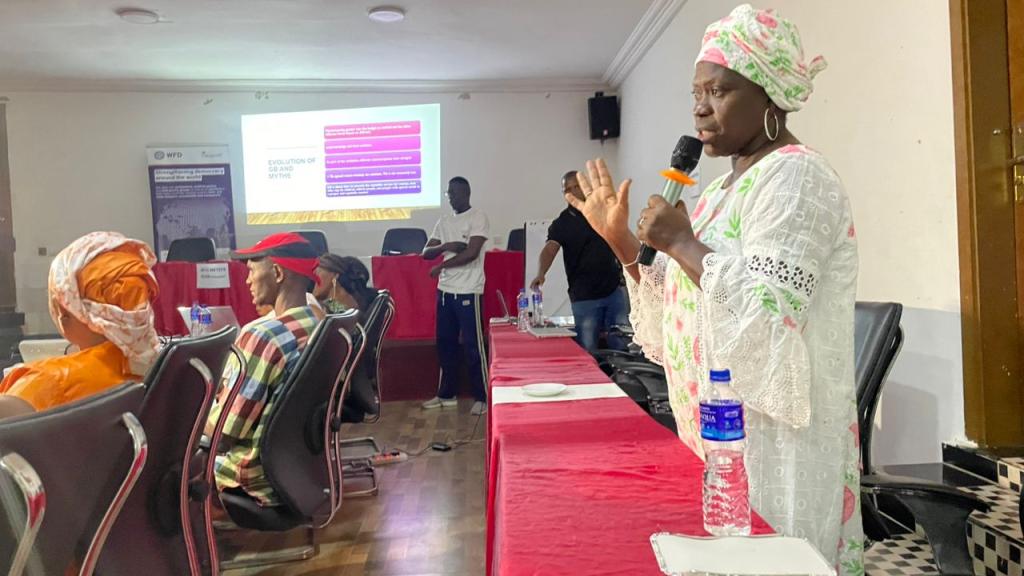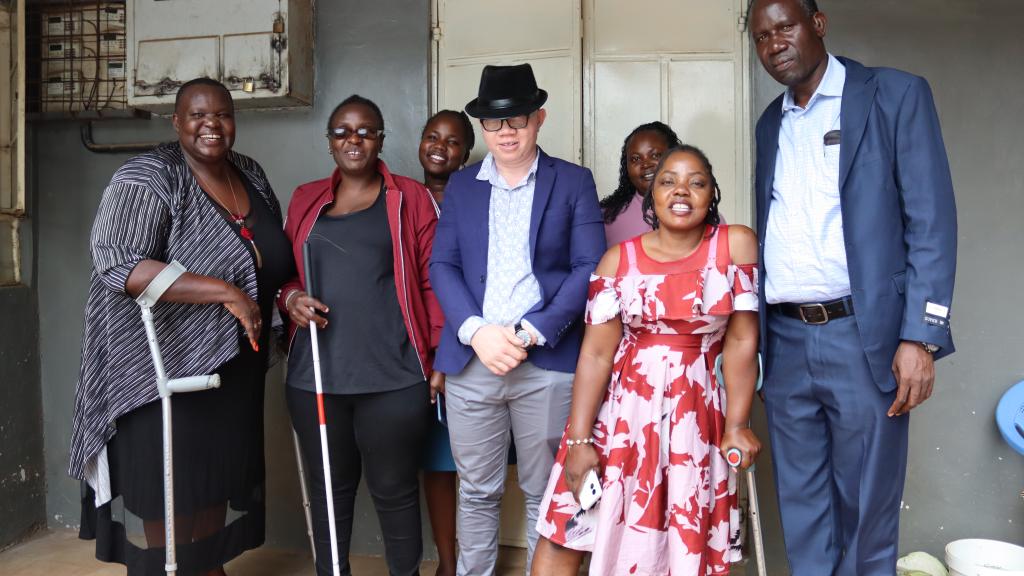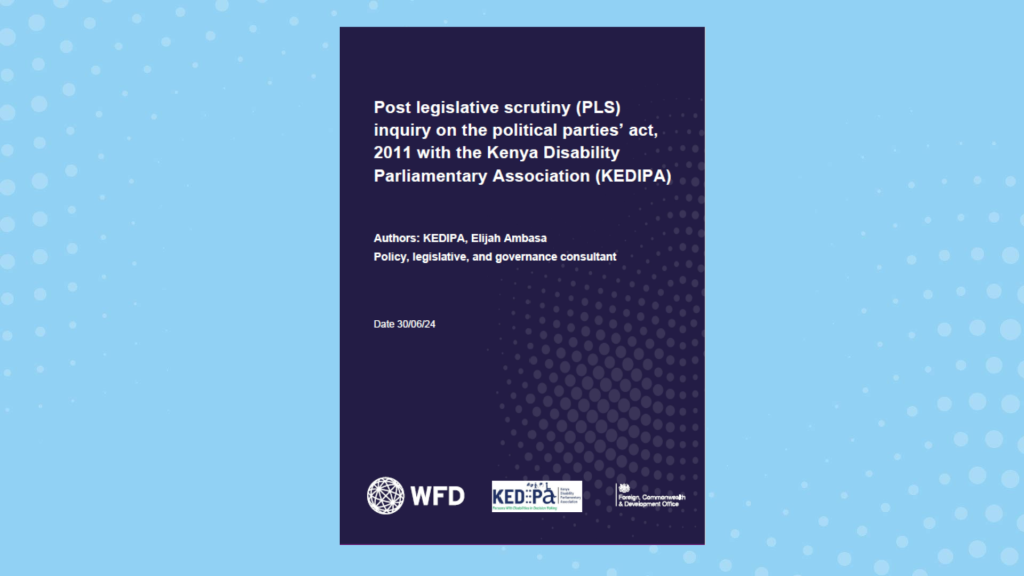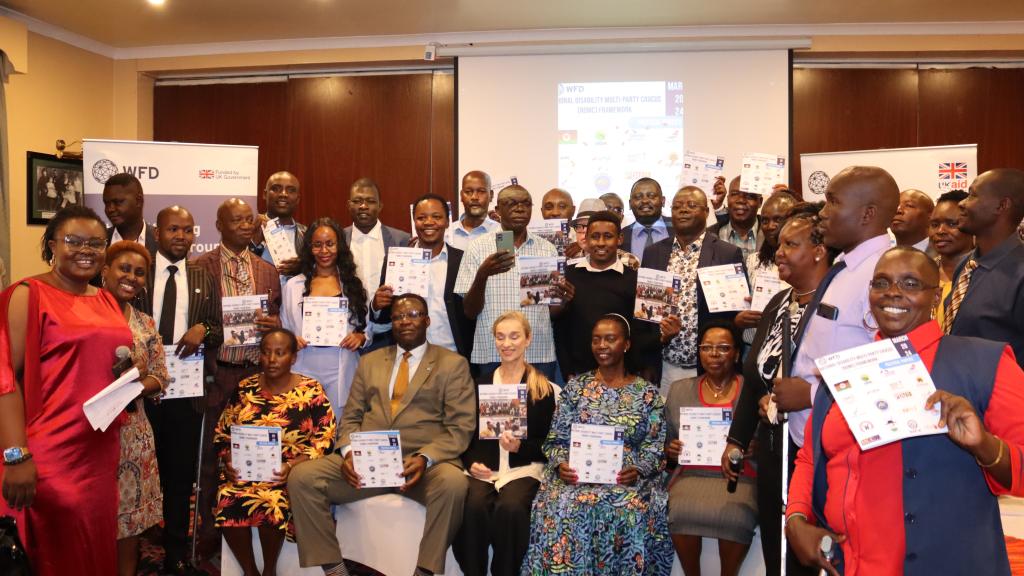Encouraging disability inclusion in Kenyan politics
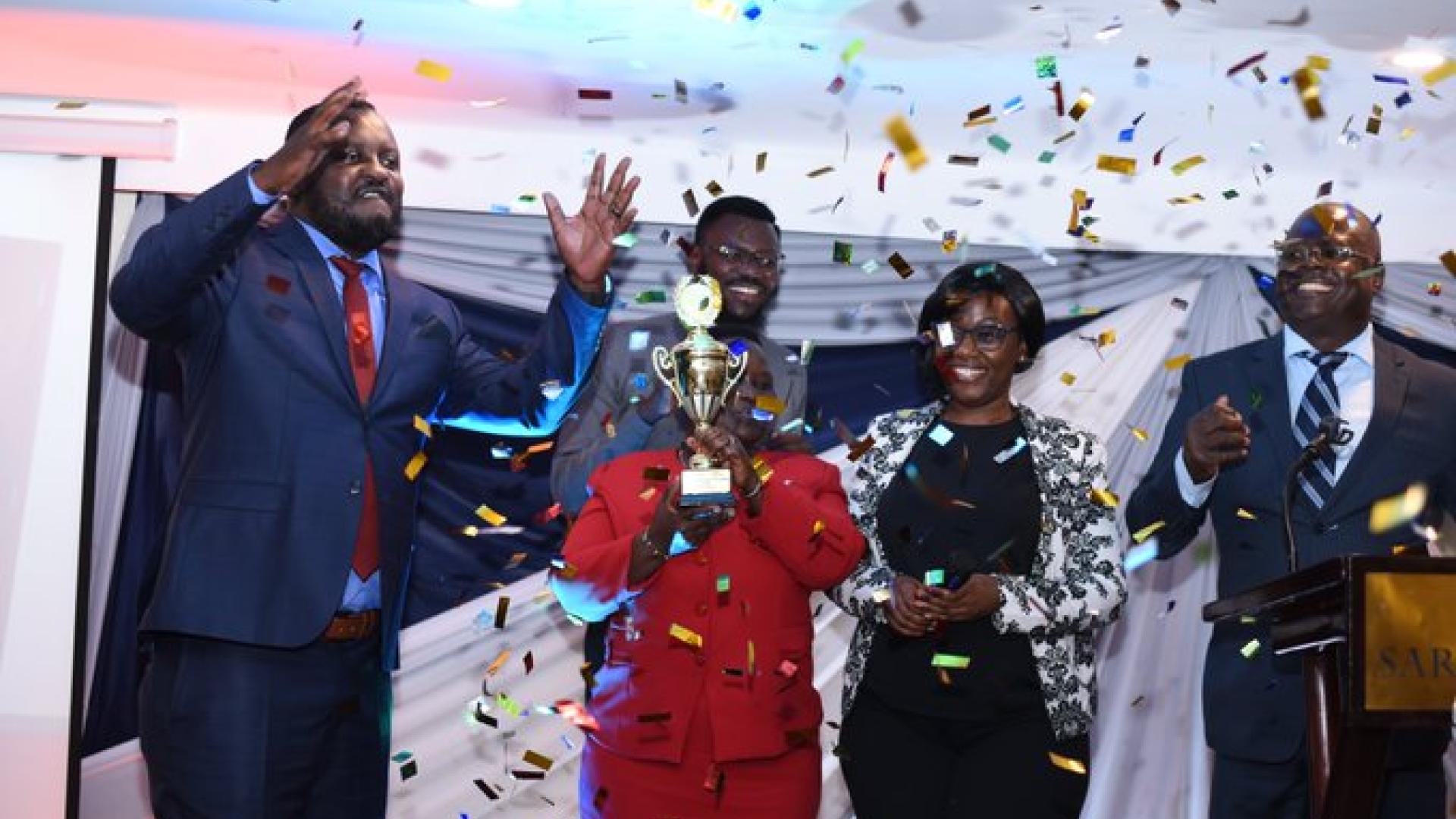
Programme Objectives
Recognising the importance of PWDs' participation in political and public life as a human right and a catalyst for inclusive development, the Kenya Inclusive Political Parties (KIPP) programme was developed by WFD and funded by Demo Finland. This programme addresses critical knowledge gaps within political parties to foster inclusive political discourse, political commitments, and public policymaking.
Key components of the KIPP programme
Strengthening legislative and policy agendas: The KIPP programme facilitates a strategic partnership between Organisations of Persons with Disabilities (OPDs) and the Kenya Disability Parliamentary Caucus (KEDIPA) to strengthen legislative and policy agendas in parliament. This collaboration aims to ensure that the unique needs and perspectives of PWDs are integrated into the policymaking process.
The KIPP award 2023: This initiative aims to recognize and celebrate political parties that demonstrate exceptional commitment to inclusivity and actively work towards creating an environment conducive for PWDs to participate in politics.
Increased representation in National Executive Committees (NECs): The programme strives to increase the number of PWDs in Political Parties' (PPs) NECs, acknowledging the crucial role these committees play in shaping party policies and decisions. This increased representation ensures that the voices of PWDs are considered at the highest levels of party leadership.
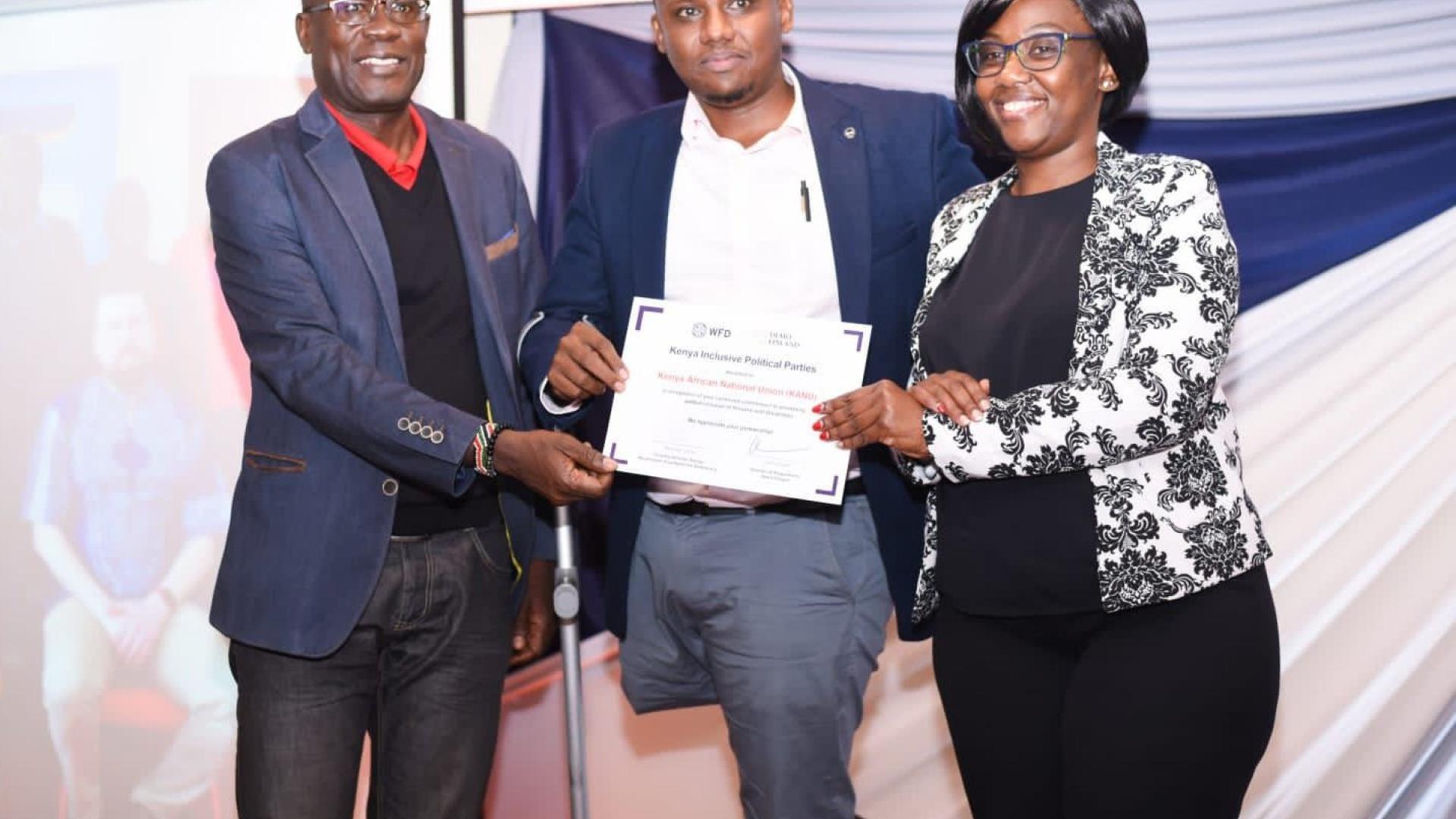
Growing interest in KIPP programme: An encouraging trend is the rising interest of political parties in joining the KIPP programme. This signals a growing recognition within the political landscape of the need for inclusivity and the value of diverse perspectives in shaping political discourse and decision-making.
Coordination of Finnish delegation visits to parliament: The KIPP programme facilitates coordination between Finnish delegations and the Kenyan Parliament. This exchange of knowledge and experiences contributes to building a more inclusive political landscape, drawing on international best practices.
Functional Disability Leagues (DLs) in partner political parties: Twelve out of the sixteen KIPP partner political parties have established functional Disability Leagues (DLs). Although at different levels, the existence of these DLs signifies a commitment to creating spaces within parties that cater specifically to the needs and concerns of PWDs.
Cross-party learning and sharing: The value placed on cross-party learning and sharing is evident, with political parties expressing interest in forming a Disability League Caucus. This initiative aims to create a robust platform for DLs to collaborate, share experiences, and collectively advocate for the rights and inclusion of PWDs.
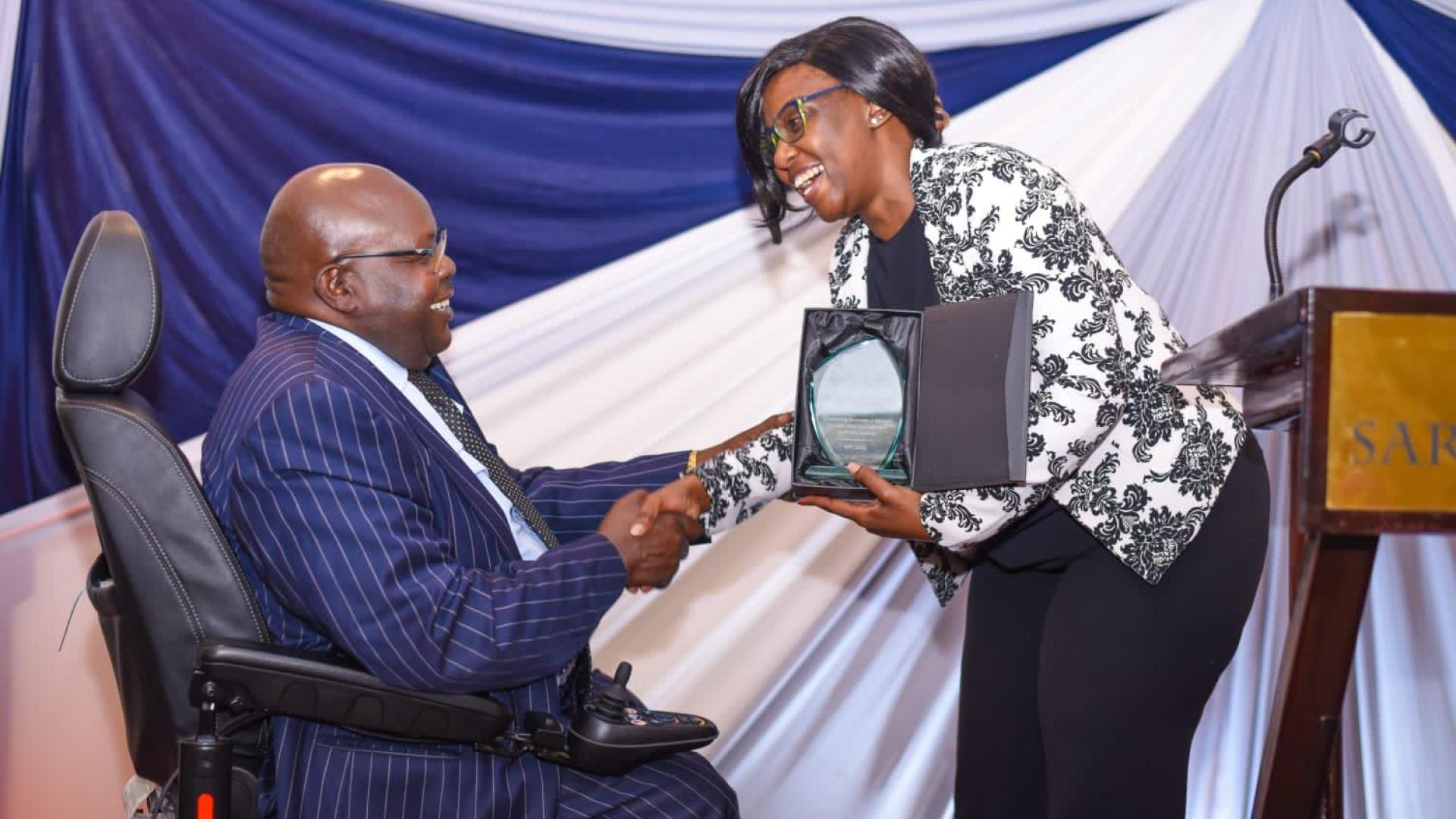
Conclusion
As Kenya strives to build an inclusive democracy, the KIPP programme stands as a pivotal initiative addressing the systemic exclusion of PWDs in political processes. Through strategic partnerships, awards, increased representation, and knowledge exchange, KIPP is not only bridging critical gaps but also fostering a culture of inclusivity that is essential for the nation's development. The commitment of political parties to this program marks a positive shift towards a more representative and participatory political landscape in Kenya.
